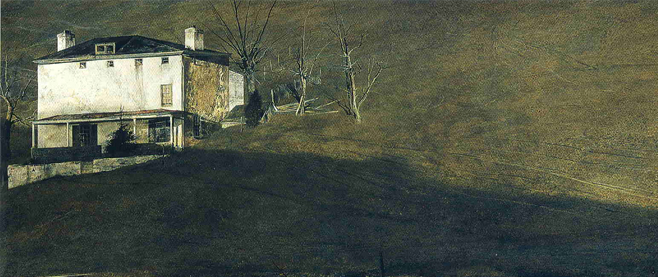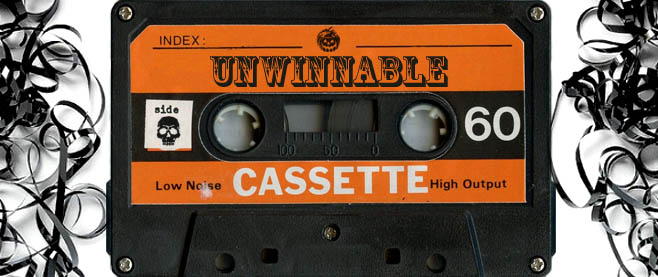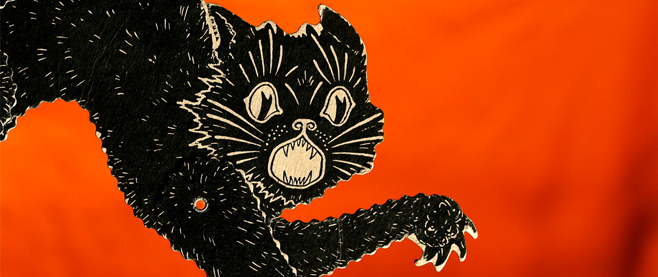
Jenny from Thebes Review
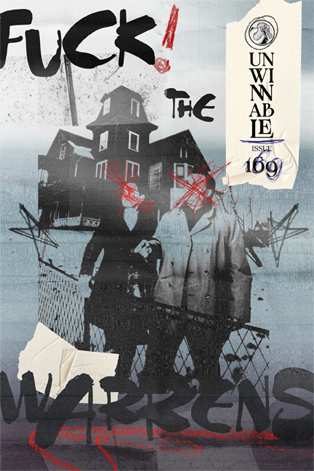
This column is a reprint from Unwinnable Monthly #169. If you like what you see, grab the magazine for less than ten dollars, or subscribe and get all future magazines for half price.
———
What’s left when we’ve moved on.
———
Jenny from Thebes is a throwback in multiple senses. Most basically, it’s an album that intentionally draws up the imagery of ancient Greece. It’s also a sequel to the Mountain Goats’ 2002 album All Hail West Texas. And for a lot of people around my age, it’s also a return to the discography of a band who was formative of our middle or high school years.
This was certainly true for me: the Mountain Goats have followed me from middle school to college, and nearly a decade after that. I tell the story of when I met John Darnielle at Powell’s Books often, although nothing interesting happens in it (short version: I got a book signed). I don’t think about the Mountain Goats often, but that’s because I periodically find them again, almost inevitably.
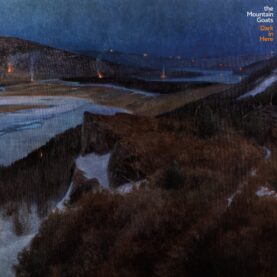
My favorite album of theirs in the past ten years was Dark in Here (2021). Apart from that, their recent albums have been one hit wonders for me, for songs like “Clemency of the Wizard King” and “January 31, 438.” Transcendental Youth, which came out when I was in high school, is what I regard as the last classic Mountain Goats album, and coincidentally it’s also the second predecessor to Jenny from Thebes; the first one, of course, is All Hail West Texas, the other contender for THE Mountain Goats Album (with the other option being Sunset Tree).
The choice to make a sequel to two out of three of a band’s most esteemed albums opens Jenny from Thebes up to comparison. Indeed, several times on my first listen of the album, I found myself opening one of its predecessors instead. This album is made for the many people who have been with the band for a while, but that can also make getting into it more difficult. If the Mountain Goats are a formative part of your life, like they are for me, it can be hard to listen to something new without immediately wanting to go back to the old.
If you listen to the 2000s output of the Mountain Goats enough, you realize there are a couple types of songs. There are “Going to —” songs, and conversely “getting out of this place” songs. There’s now “Jenny” I and III. The other type present on this album is historical songs. Pairing something contemporary with something old subtextually is nothing new for this band. There’s “The Anglo Saxons” and all of Songs for Pierre Chuvin, which tells the story of pre-Christian pagans in the Roman Empire (“Notch some wins, take some losses / Be nice to the guys who wear necklaces with crosses”). This is territory Jenny from Thebes goes into, but not as directly. I couldn’t tell you, after my first listen, what ancient Greece has to do with this album; close reading of the lyrics offers clues, but it needs further study. This is exactly what I like about the Mountain Goats: their best songs ask you to do research.
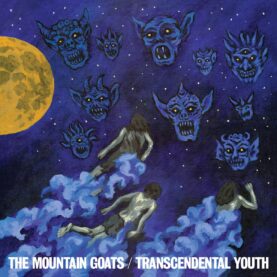
That requirement might seem more present than it’s ever been in this album, which is the most straightforward sequel they’ve ever made and requires listening to All Hail West Texas, at least, to fully appreciate. But in fact, everything you need to know is spelled out more clearly than ever. The thread between All Hail West Texas and the second “Jenny” album, Transcendental Youth, was incredibly thin. Any connections are subtext. I like it that way, and I much prefer the songs on Jenny from Thebes that have nothing holding them to their predecessors besides a few simple themes, pending a diligent study of the previous albums. “From the Nebraska Plant” removes any mystery by making one of these straightforward connections; “Same as Cash”, the next song, does a much better job of communicating a theme of the album, exhaustion, without all the verbal touchstones.
This was a common experience for me and this album: one song would fall flat, and the next one would save it. There’s another brand of Mountain Goats song where everything hinges on the strength of a particular phrase, and if you don’t find that phrase compelling, good luck. “Cleaning Crew” is an offender here, where “Murder at the 18th St. Garage” pulls out a much stronger refrain.
And this is when I realized I was supposed to be thinking not of a generic crew and a garage, but a crew and a garage in West Texas. Many of the best Mountain Goats songs have some way of situating you in space, whether through a chronological story (“I wish the West Texas Highway was a Mobius strip; I could ride it out forever”) or back and forth in time like “San Bernadino”. Jenny from Thebes is trying harder than maybe any previous album to create a specific place, but it still feels unmoored, somewhere between Greece and Austin. And not in a past-in-the-present way, but like the album can’t decide where it is.

I find myself wishing Jenny from Thebes weren’t a rock opera, weren’t a sequel at all. I had by far the most enjoyment out of it when it wasn’t diving back into its own past. But besides the question of if it’s fair to compare this album to its predecessors – if you’re not doing that, you’re lying – I’ve got to judge the album on its own terms, as a story about a collective house and the person who runs it. It’s also the story of a songwriter aging twenty years and imagining their characters doing the same.
Mountain Goats fans, and I say this as one, are insufferable in their own special way. “Game Shows Touch Our Lives” was a John Green epigraph, for instance. The original “Jenny” was the Tumblr bio of every teen ten years ago: “you pointed your headlamp toward the horizon/ we were the one thing in the galaxy God didn’t have his eyes on”. To love something truly is to be a little cringe about it. These songs don’t land for me, but I know they will for many of the people who appreciate the band the most. And I can’t be too mad, because they’ve put out five albums in three years, and I like some of those albums much more. I can’t fault them for not just doing more of the Mountain Goats, but I also feel the lonely irony of wanting exactly that while I look at an album that is basically the Mountain Goats boiled down to its component parts.
If nothing else, Jenny from Thebes got me to go back and listen to two of my favorite albums of all time and made me reflect on how my enjoyment of this band’s music has changed over the course of fifteen years. I hope John Darnielle et al keep making music forever, and I hope they continue to experiment and evolve. The opposite of living, as “Jenny” 1.0 reminds us, is stagnation.
———
Emily Price is a freelance writer and PhD candidate in literature based in Brooklyn, NY.


